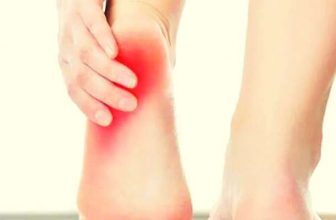
What Is Calcium Score? | Tips To Reduce It | To Know About The Calcium Score Grades
Calcium score measures the amount of plaque deposited into the lumen of the cardiac vascular walls. At the same time, the total density and area of calcium deposit in the myocardium is termed a calcium score. The calcium score is also known as calcium heart score or coronary calcium score. Moreover, measuring the calcium score of your body is a reliable method for screening coronary artery disease. There are different causes of increasing calcium heart score, and Hypercholesterolemia is one. The lipids and cholesterol deposit in the heart vessels become calcified and increase the risk of chronic heart disease (CHD), specifically directed towards coronary artery disease. [1]
Hence, this is the score between 0-1000, and the process of calcification increases 10-20% each year. Visit this article and know about the detail.
Health Benefits Of Different Nuts And Dry Fruits
Who Should Get A Calcium-Score Screening?
You should consider a calcium scan if you are between ages 40-70 and at increased risk for heart disease but do not have symptoms. Those at increased risk of developing heart disease include people with the following traits:
- Family history of coronary heart disease
- The past or present smoker
- In medical history, the history of high cholesterol, diabetes, or high blood pressure is long and winding, and it goes back thousands of years.
- A widespread problem today is having overweight. To find a solution, you should read this article.
- You’re inactive because of your busy schedule.
- The traditional risk factors for heart disease include being older, having a family history of heart disease, being a woman, and diabetes.
- Familial Hypercholesterolemia is a genetic disorder that makes it difficult for some people to process cholesterol. Calcium imaging can help identify the problem and treat it before it causes problems later in life.
As this test is not perfect in identifying individuals at risk for a life-threatening event, it is essential to remember that this test is not predictive of such an event. This test should therefore be viewed as only a screening tool.
What Are Good/Normal And Bad Calcium Scores?
A zero calcium score is also a good calcium score, representing no calcium plaque deposition detected in the heart, ultimately lowering cardiac disease risk.
The Extent Of CAD Is Graded According To Your Calcium Score
| Calcium Score | Presence of CAD |
| 0 | No evidence of CAD |
| 1-10 | Minimal evidence of CAD |
| 11-100 | Mild evidence of CAD |
| 101-400 | Moderate evidence of CAD |
| Over 400 | Extensive evidence of CAD |
A bad calcium score represents a coronary calcium score greater than 100. 100 to 300 limit shows moderate to severe plaque deposition in the arterial lumen and moderately severe risk of developing cardiomyopathy. A greater than 300 calcium score will render you at very severe risk of coronary artery disease or cardiac arrest.[2]
Do I Need A Calcium Scan/ Calcium Score Test/ Heart Scan?
Firstly, a calcium scan will provide valuable information regarding your risk of developing a cardiac disease. At the same time, a calcium scan is not for everyone but for those who have already been diagnosed with cardiac pathology or experiencing defined symptoms of cardiomyopathy. Above all, the test is most useful for women of 60-70 and men of 50-60 years.
Is There Any Alternative To Calcium Score Test?
Your healthcare practitioner will prescribe the best test for you, but Lipid profile, Stress test, and risk stratification are the most feasible calcium scan/calcium score test alternatives.
Does High Calcium Score Cause Pathology?
Hypercalcemia itself can do nothing to elevate calcium score. But an injury to a vascular wall due to LDL cholesterol deposition followed by an inflammatory cascade and calcinosis of the plaque as a natural response to the inflammatory process represents a high calcium score. It can also subsequent cardiomyopathy or myocardial infarction.
Is High Calcium Score A Trigger For Cardiomyopathy?
The higher the calcium score, the higher the risk of cardiovascular disorder. A score of greater than 100 will put you at an emerging risk of coronary artery disease. A score of greater than 300 to 400 indicates the severe risk of coronary artery disease.
Can I Have Cardiac Arrest With Low To Zero Calcium Score?
Initially, you may have a high calcium score with no coronary blockage or stenosis symptoms. You may get a cardiac arrest with a zero calcium score, the same as other causes that may impose you on cardiac arrest or other cardiomyopathies. Cardiovascular disease can cause the death of a person.
Is High Calcium Score A Trigger For Extra Cardiac Symptoms?
The relevance of calcium scoring to Lipids and other cardiovascular risk factors is known, but calcium score, on the one hand, will elicit cardiac symptoms. On the other hand, it triggers extra extracardiac symptoms, including
- Pulmonary and systemic hypertension
- Pulmonary infarct
- Embolism
- Ischemia
- Stroke
Is A High Calcium Score A Death Sentence?
As we know, calcium score is a significant predictor of atherosclerosis. At the same time, the consequences may lead you towards coronary artery disease, myocardial infarct, or cardiac arrest, which may be fatal. The recurrent infarcts will undoubtedly result in a death sentence.
How Can We Lower High Coronary Calcium Score?
Primary Prevention
Your healthcare practitioner will prescribe you ASPIRIN and also HMG-CoA reductase inhibitors to prevent the risk of cardiomyopathy.
Tips To Reduce Your Calcium Score
In most cases, home remedies are fruitful in preventing or reducing your coronary calcium score. Moreover, this may be good news for you as these remedies may be substantial for you to get rid of your statins and the drastic risk of cardiomyopathy.
- Cloves
- Metamucil
- Apples
- Flaxseed
- PytosPhytosterols
- proteins
- Oatmeal
- Barely
- Garlic
Top Health benefits of Tomato Soup
What Are The Benefits VS Risks?
Benefits
A cardiac CT scan to determine if you have coronary artery disease (CAD) is a convenient and non-invasive way of evaluating whether you are at increased risk for a heart attack.
The exam is easy and quick, doesn’t cause any pain, and doesn’t require an injection of contrast material. You can have an EBT scan take less than 20 minutes, and you can resume your regular activities immediately after the test.
X-ray imaging or computed tomography (CT) can have no immediate side effects.
Risks
Although there is always a slight chance of cancer from excessive radiation exposure, this is rare. Despite the benefit of an accurate diagnosis far outweighing the risks, CT scanning is still the preferred method for diagnosing a stroke.
There are a few ways to get a good idea of the amount of radiation you’ll receive from a CAT Scan. It’s essential to be aware that the radiation dose from an X-ray exam or CT exam can be dangerous. This provides additional information about the radiation dose for X-ray exams and CT scans.
A Woman should always tell her doctor and CT technologist if you think you’re pregnant. They need to know if you’ve got an early pregnancy. Pregnant women are allowed into the radiology department for all kinds of x-rays and procedures. Pregnant women who need any radiographic technique should ensure that they are as safe as possible during their entire pregnancy, so they should tell their doctor if they plan to become pregnant.
A high calcium score may sometimes be followed by other diagnostic tests for heart disease, followed by either a positive or negative result. It may or may not provide results with clinical value and can be associated with side effects.
What Are The Clinical Implications Of High Score Calcium?
According to an atherosclerotic burden, there is a risk continuum. The cardiovascular disease risk of some asymptomatic primary prevention patients, such as those with CAC ≥1000, is the same as or higher than that of traditional secondary prevention patients.
The cardiovascular disease (CVD) risk of some asymptomatic primary prevention patients such as those with coronary artery calcium score (CAC) \>1000 is similar to or higher than that of traditional secondary prevention patients.
A study published in the Journal of the American Heart Association suggests that aggressive preventive measures including statins, ezetimibe, proprotein convertase subtilisin/Kexin, and type 9 inhibitors should be an essential component for reducing the risk of cardiovascular disease.
It’s essential to recognize that this group of people is unique, with a different risk profile, pathophysiology, and treatment outcomes than other groups. So there should be different recommendations for these patients.
Therefore, A calcium score not only represents your pathological cardiac signs but also determines systemic clinical presentation. Further, a high calcium score may culminate in a death sentence for you. However, you do not need to go through a calcium scan if you are already a diagnosed cardiac patient. Therefore, stick with your prescribed statins, reliable home remedies, a healthy diet, and a prescribed exercise plan. Thus, this process will assure you a long healthy life.
Is Lemon Tea Good For You? 11 Incredible Health Benefits Of Lemon Tea







[…] IS A HIGH CALCIUM SCORE A DEATH SENTENCE? […]
[…] all. What is calcium in food? has become an important question lately due to the high quantity of calcium in many junk foods available […]